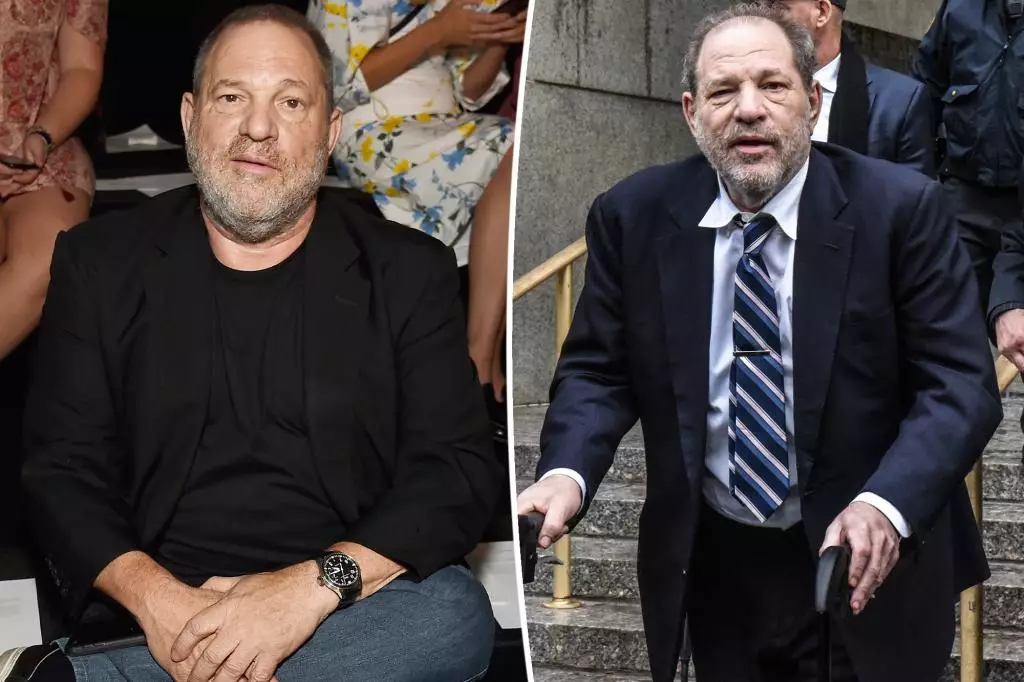The downfall of Harvey Weinstein, the once-esteemed film producer, continues to unfold with the recent revelation of his cancer diagnosis. Now 72 and serving a hefty prison sentence for multiple sexual offenses, Weinstein’s life story is riddled with both monumental success and profound disgrace. According to insiders cited by The New York Post, he received the diagnosis earlier this month, prompting a mix of public concern and media speculation. Despite initial denials from his representative, who condemned the rumors as irresponsible and inappropriate, the news has ignited conversation about the implications of Weinstein’s health and legacy.
This diagnosis serves not only as a personal tragedy for Weinstein but also raises questions about privacy and the right to health information in high-profile cases. His representative, Craig Rothfeld, expressed concern over the intrusion into Weinstein’s medical condition, stating that such matters should remain confidential. This sentiment, while understandable, also brings to light the reality that Weinstein’s actions have thrust him into the public eye, making it difficult to separate his personal health from the public interest that envelops his notorious reputation.
Harvey Weinstein’s name has become synonymous with the #MeToo movement, which emerged in response to widespread allegations of sexual misconduct across various industries. In 2017, the stories of numerous women, including prominent actresses, began to surface, detailing harrowing experiences of abuse and intimidation. One of the first to accuse him was actress Rose McGowan, who bravely publicized her ordeal from 1997, recounting how Weinstein allegedly assaulted her under the pretense of a business meeting. These revelations exposed a long-standing culture of silence and fear that often kept victims from coming forward.
The impact of Weinstein’s actions reverberated far beyond individual allegations. It sparked necessary conversations about sexual misconduct, consent, and power dynamics in Hollywood and beyond. The realization that numerous women felt threatened into silence for years showcased the systemic issues within power structures—both in entertainment and other professional realms—highlighting the urgent need for reform.
In March 2020, Weinstein was sentenced to 23 years in prison for third-degree rape and first-degree criminal sexual acts, following a high-profile trial that captivated the nation. Justice James Burke’s remarks during the sentencing reflected not only the severity of Weinstein’s crimes but also acknowledged a broader societal failure: “Although this is a first conviction, it is not a first offense.” This statement underscores the pre-existing patterns of abuse that continued unchecked for far too long.
Weinstein’s trial and subsequent conviction were watershed moments that galvanized activists and survivors, spotlighting the urgent need for accountability for perpetrators of sexual violence. Weinstein’s self-portrayal during sentencing, where he discussed differing “truths” and displayed a semblance of remorse, only fueled further outrage among victims and advocates who felt that his acknowledgment fell short of true accountability.
While Weinsteins’ current incarceration seems to signify a form of justice for his many victims, the legal battles are far from over. Most recently, he awaits a retrial after a New York Court overturned his initial conviction due to a closely contested decision. Meanwhile, he faces another 16-year sentence stemming from a separate trial in 2022, where he was convicted of multiple sexual assault charges.
These developments reveal a complicated legal landscape, weaving through various layers of judicial scrutiny. The back-and-forth of Weinstein’s trials reflects broader societal debates on justice, equity, and the legal system’s ability to respond to systemic issues of abuse. For many, the question remains: can true justice be served in cases where power and privilege intersect so destructively with humanity?
As Harvey Weinstein grapples with the consequences of his actions and his recent health diagnosis, the ripples of his choices continue to impact countless lives, awakening a societal consciousness that may yet pave the way for a more equitable future.

